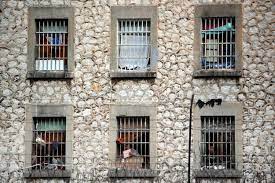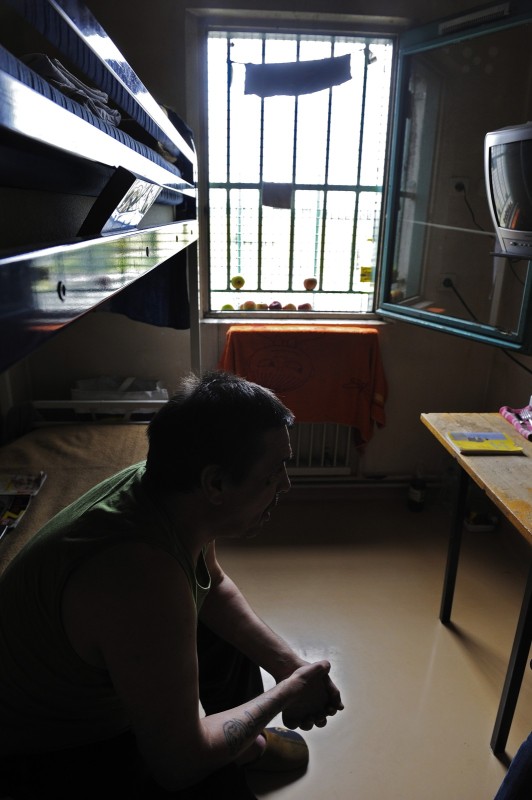
Next weekend, Europe goes to the polls. Betting on the destabilization and nationalist sentiment fostered through neoliberal economies of fear and debt, the right and extreme right parties hope to win more seats in the European parliament. Their strategy is simple: announce a time of turmoil and crisis and then reduce political discourse to the mythology of the white male moralistic views as the only source of security. In fairness, the leftist parties have not done much to propose real alternative discourses and policies.
Last week, the right used this strategy in France against Christiane Taubira, the French Minister of Justice.
At the beginning of her appointment, Taubira brilliantly passed a same-sex marriage bill. When the most conservative constituents launched sordid assaults, Taubira responded with literary quotations that won the day. It was a virtuoso performance.
No virtuoso performance and no victory in the name of justice and equality can go unpunished.
And so the French right wing has launched an all-out campaign against Christiane Taubira.
They Americanized their techniques, using the power of repetition of simple and nationalistic slogans against her. Their goal was to blur her message and vitiate her work on undoing the politics of security that criminalized the vulnerable, at-risk populations attacked by anti-migrants sentiment or austerity measures.
After innumerable racist attacks, the neoliberal conservative coalition finally created a buzz around a song. The song was the National Anthem, La Marseillaise, sung by a chorus and soloists. Along with other members of Government and the President of France, Taubira attended a ceremony to commemorate the abolition of slavery. It was a solemn occasion, althought not for the Front National (FN), the nationalist party, that marked its denial of the offense of slavery by refusing to participate. They also refused to celebrate General Dumas, the first French General born in slavery and father of Alexander Dumas.
What happened was this. Taubira didn’t sing. This was presented as refusing to sing, which triggered a methodic orchestration in the media of repetitive messaging. The only problem is that singing the national anthem has never been popular in France. None of Taubira’s colleagues sang the anthem that day, but it was Taubira who was viciously attacked. Some questioned her “Frenchness” and demanded her resignation. The message was already prepared. A series of attacks and accusations overloaded the media. What is remarkable it the technique; the terms used repetitively by the members of this political “SWAT team” went from accusing her of sectarianism and of being unworthy of her position to being lax and having a contemptuous tone.
Thanks to her strong background in racial and social justice and activism in Guiana where she was born and grew up, Taubira was undaunted. Guiana is a French overseas department located in the Caribbean side of South America. Her political engagement is linked to this land, and she embodies a liberating ideal that has made her the bane of the elite of the right and extreme right in France. Before she became Minister of Justice, Taubira had been a French parliamentary deputy for Guiana between 1992 and 2002. In 2001, she put her name on a bill that recognized the Trans-Atlantic slave trade and slavery as a crime against humanity. At that time, she published a book, L’esclavage raconté à ma fille (Slavery explained to my daughter).
At the beginning of her career, Taubira denounced the crude mistreatment by the post-colonial French state of the overseas population. As Minister of Justice, she has denounced the politics of mass incarceration. She has also asserted the responsibility of civil society to respect human dignity as France’s overcrowded prisons have resulted in France being reprimanded by the European Committee for the Prevention of Torture and Inhuman or Degrading Treatment or Punishment in 2012.
Taubira’s problem is not singing the national anthem. Her problem is keep open the possibility of a fair debate on her penal bill in a National Assembly in which some members have gendered and racist slurs prepared for her. The manipulation of public opinion is not new, but these violent and ongoing attacks on Christiane Taubira signal that the project of hyper incarceration knows no limits.
This instrumentalization of language and communication is there to obscure the real responsibility of conservatives in the advancement and normalization of fascist and extreme right parties in Europe, not to forget the Tea Party and the dramatic turn to the right in the United States. The songs we should pay attention to are those of social destruction as multiple trade agreements are secretly negotiated, in particular TAFTA that threatens women and social cohesion in Europe, in France and elsewhere. The global prison is inscribed all over this agreement.
Christiane Taubira did not make any faux pas. If you must attack someone, attack her neoliberal detractors, who are not worthy of public position and who know neither the lyrics nor the melodies to the songs of justice and humanity.
(Photo Credit: Libération / Kenzo Tribouillard / AFP)






